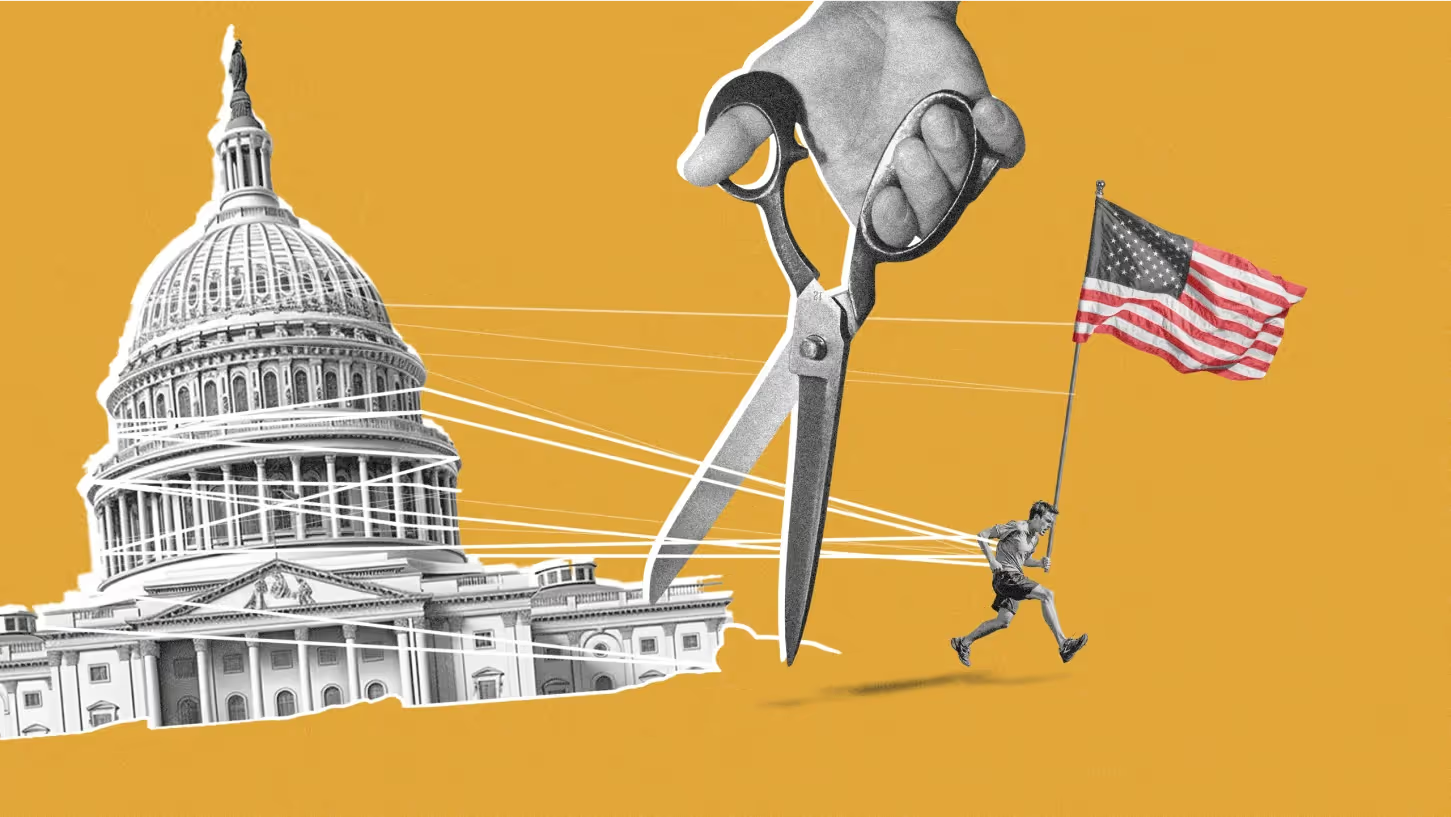
How to Curb the Administrative State?
The antidote that prevents massive government abuse is to insist that the government follow the dictates of private law.
One of modern American government’s most notable features has been the relentless growth of the administrative state. The massive discretion the now discredited doctrine of Chevron v. NRDC (1984) gave to administrative agencies largely fueled that growth. But despite Chevron’s well-earned demise in Loper Bright Enterprises v. Raimondo (2024), aggressive government action to expand the administrative state is moving forward on multiple fronts. Lawyers, judges, and regulators constantly invoke novel legal conceptions of traditional terms to undermine the substantive protection that the Constitution offers its citizens against unwarranted government growth. The manipulation of key terms in the Fifth Amendment’s Takings Clause shows how administrative state edicts undermine property rights in several legal contexts.
That simple textual command reads: “nor shall private property be taken for public use without just compensation.” This provision’s scope depends partly on an accurate rendition of the text’s key terms and partly on the supplemental gloss required to flesh out its overall contours. On both these dimensions, two essential features of the Progressive Era’s still strong—if dangerous—legacy remain. The first is to shrink private property’s basic definition to limit the scope of the clause’s protection; the second is to expand the scope of the government’s available defenses. In this instance, I will address one such defense applicable to any claim against either a private entity or the government: the plaintiff’s consent to the imposition of the applicable restriction or tax.
On the former issue, the standard definition of property identifies a bundle of sticks that belongs to any particular asset’s owner: the ability to exclude others; the ability to enter and develop the property; the ability to transfer ownership rights to a third party; and protection against trespasses and nuisances that attack either that exclusive possession or the right to use and enjoy the property in question. In dealing with the private individual, each stick in the bundle of rights is far from arbitrary: the removal of any one stick necessarily diminishes, often dramatically, the entire property’s value. The loss of use and sales rights are most obvious. Similarly, no additional stick needs to be added to realize some untouched element of value. It is for good reason that this basic bundle has proved stable in private law from Roman times to the present.
Yet the good sense of the private law conceptions does not carry over into constitutional law, which in Kaiser Aetna v. United States (1979) equated private property ownership with the right to exclude, but not the rights of that asset’s use and disposition. One consequence of that shift is that the Takings Clause, which the Supreme Court has trimmed only to protect the right to exclude, misses zoning laws that deal with land use patterns. Hence, most constitutional protection is removed. For example, the Supreme Court in Village of Euclid v. Ambler Realty Co. (1926) allowed the local government to chop a plot into six incompatible use categories (homes, apartment buildings, and commercial, each standing in the wrong physical relationship to the others). That regulation wiped out an estimated eighty-five percent of the site value even though the developer’s original planned development was miles away from a common law nuisance. Similarly, the right to sell eagle feathers, eliminated in Andrus v. Allard (1979), prevented gains from trade without explaining why some negative nuisance-like consequence would follow from that prohibition, like, for example, the destruction of some common pool asset like oil and gas, or wild animals and fish.
Expanding the available defenses open to the government to shield it from any liability arising from its attacks on private property matches this unnecessary reduction in private property protection. It is widely understood that productive social interactions require the assumption of risk of accidental harms and consent to deliberate ones. If these defenses were not available, competitive contact sports could not long survive, because the spate of tort actions would bankrupt any organized league. And it would be unthinkable to hold surgeons responsible for their surgical wounds, lest that profession come to a halt. To make matters a bit trickier, there are many informal activities where the consent is implied but not express, and there are always cases where the consent offered will not be binding because duress or fraud induced it. But these exceptions do not destroy the basic consent defense needed for cooperative activities to go forward.
It is not so in public transactions, where unwise limitations on consent take on a much more ominous coloration. It is the norm for ordinary residential and commercial leases to specify the lease’s duration, after which the tenant must vacate the premises unless the landlord renews the lease at a new negotiated price. It is thus common to make sure that these transitions occur smoothly, so that it is clear which furniture or equipment stays on the premises or leaves with the tenant. The short, precise lease duration thus allows both sides to calibrate their risk at the deal’s outset and plan accordingly.
Rent control statutes upend these arrangements by letting local governments order the landlord to leave the tenant in possession of the premises and pay a rent determined by some unduly restrictive formula (e.g. rent increases of two percent or less). In markets with rising prices, these restrictions always short-change the landlord. It is preposterous to assume that a landlord would consent on such renewal to a losing lease transaction, but the late Sandra Day O’Connor’s disastrous opinion in Yee v. City of Escondido (1992) held that the landlord who voluntarily lets a tenant on the premises cannot protest when the government extends that lease beyond its expiration date. “Because they voluntarily open their property to occupation by others,” she argued, “petitioners cannot assert a per se right to compensation based on their inability to exclude particular individuals.” That stunning proposition removes the landlord’s right to evict tenants at the lease’s end and turns a year-long lease into a lifetime fiefdom at depressed rents. That one proposition has laid waste to rental markets in places like New York City, where rent regulation (like other forms of price controls) reduces a building’s construction and maintenance, kills the tax base, and impedes residential mobility, all because the government has bowdlerized the consent requirement.
The Inflation Reduction Act’s Drug Negotiation Program, now challenged in multiple lawsuits across the country (in which I have coauthored amicus briefs against the government), presents that same danger in a different guise. That statute allows the Centers for Medicare and Medicaid Services (C.M.S.) to select highly profitable individual drugs that have no generic competition for mandatory price negotiation and to set a “maximum fair price” for the sale of these premium drugs to Medicare and Medicaid, far below their current market price. The stated statutory option lets companies refuse the sale at bargain rates by accepting a substantial civil penalty equal to ten times the difference between the drug’s actual selling price and the arbitrary “maximum fair price” the government sets. The government’s kicker is that any drug company can avoid this dual constraint, no questions asked, so long as they withdraw all portfolio of drugs from Medicaid and Medicare, a move surely to result in losses far greater than any single drug’s mandated price deduction. As C.M.S. tells it, by staying in the government-controlled market, drug companies, as many legal authorities voluntarily have held, consented to accept the better of the first two options.
C.M.S. holds a legally preserved monopoly position concerning almost half the consumer market. Any pharmaceutical company excluded from this market faces enormous losses. But it is not just the size of the loss that matters; it is the lack of consent by the firm, which must exit the market if it refuses to take the market price. Thus, think of a buyer from a cartel or a monopolist who pays an inflated price voluntarily. If their consent blocks any lawsuits, then the antitrust is a dead letter, because any purchasers are, almost by definition, always better off with the deal than without it, even if their gain is reduced. Yet potential purchasers who drop out of the market are so diffuse that none have standing to sue. So, the correct rule is the antithesis of what the government claims and the courts have accepted. In any lawsuit against a monopolist, consent is irrelevant. Indeed, if it were allowed, the antitrust laws would end because every buyer from that party would agree to pay the monopoly price. But the complaint here is that the price is too high, relative to the competitive ideal, which justifies treble damage to stop a per se violation of the antitrust laws.
That same principle applies against this government monopolist (technically a monopsonist as a buyer of goods), which means that the purported consent is wholly irrelevant, at which point the statutory scam becomes evident. If both option A (the reduced price) and option B (the punitive tax) are confiscatory, the government's monopoly to extract firm profits does not gain its absolution. The third illicit option does not excuse the illicit character first two. It is no answer to say that the government is entitled to drive a hard bargain, as it often does with defense and Veteran Administration contracts, because in neither context does it ever threaten to upend other preexisting contractual arrangements. The C.M.S.'s short-term antics have similar consequences to the flawed rent control statutes. They stifle innovation for new drugs, such that the consent defense’s abuse has negative consequences that transcend the immediate parties to damage the public as a whole.
As with the definition of private property, the antidote that prevents massive government abuse is to insist that the government follow the dictates of private law. The Court must adopt the most faithful interpretation of the Takings Clause to bring it more in line with traditional understandings of private property rights and the substantive protections found in the Constitution, which are also needed to check the abuses of the administrative state.
Richard A. Epstein is the Laurence A. Tisch Professor of Law, New York University Law School, and a senior lecturer at the University of Chicago.
Constitutionalism

Amicus Brief: Hon. William P. Barr and Hon. Michael B. Mukasey in Support of Petitioners
Former AGs Barr and Mukasey Cite Civitas in a SCOTUS Brief

Rational Judicial Review: Constitutions as Power-sharing Agreements, Secession, and the Problem of Dred Scott
Judicial review and originalism serve as valuable commitment mechanisms to enforce future compliance with a political bargain.

Supreme Court showdown exposes shaky case against birthright citizenship
Supreme Court will hear challenges to Trump's order ending birthright citizenship, testing the 14th Amendment's guarantee for babies born in America.

Kneecapping Powell, Undermining the Rule of Law
Donald Trump and conservatives know the perils of lawfare all too well. Why subject Jerome Powell to the same thing?
%20(1).webp)
Limiting the Federal Government
Failure to consider the sponsors’ representations of the Constitution’s meaning seriously impairs the quality of interpretation.
.avif)

.avif)







.avif)
.avif)





